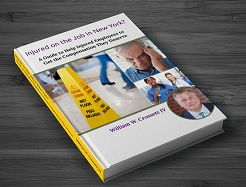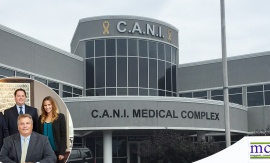The biggest decision you will have to make in your case is whether or not to accept a section 32 settlement, which usually means a one-time lump-sum payment, as opposed to ongoing weekly payments. Typically, a Section 32 agreement will end both the carrier’s obligation to make lost wage payments and end their responsibility for medical coverage; although sometimes the Section 32 agreement is limited to lost wages, leaving the medical portion of your claim open.
When considering accepting a one-time payment, instead of ongoing payments, you must weigh many factors, including how long your lost wage benefits are likely to continue, and the cost of your likely future medical needs, including prescriptions.
In March of 2007, the law was changed by placing limits or caps on how long lost wage benefits are paid. The duration of the payments is determined by your Loss of Wage Earning Capacity (LWEC), in combination with either (a) your reduced earnings (if you are working) or (b) your level of impairment (if you are not working). The LWEC determination is either reached by agreement or found by the presiding Judge.
If you are on Social Security Disability Income (SSDI) at the time of settlement, that will carry some weight regarding your degree of impairment. However, collecting SSDI is not equivalent to a finding of a 100% LWEC for purposes of New York Worker’s Compensation.
As federal law prohibits a transfer of your medical care from the Workers Compensation carrier to the federal Medicare system, a monetary provision for your medical needs must be made in the Section 32 settlement if your medical is concluded. This is referred to as a Medicare Set Aside (MSA). The MSA is a sum of money that you are required to hold/use for your future medical care and treatment. The idea is that if you exhaust the MSA monies, Medicare will then pick up the cost of care, subject to its rules.
The entire settlement process can be very complicated because it requires both good faith projections as to your future lost wage benefits and medical care, as well as serious negotiations with the carrier, who may or may not be interested in a section 32 agreement. Typically, Section 32 settlements involve non-schedulable cases such as Back and Neck injuries. However, Schedulable cases such as Hand(s) and Knee(s) injuries may also be the subject of Section 32 Agreements.
Because of the complicated nature of a Section 32 agreement, your interests are best served by working with a local attorney who has experience with the process, and who can offer advice and strategy that works best with your particular situation and goals.
William W. Crossett IV
Partner
Email: crossett@mcvlaw.com
Phone: 315-471-1664
Mr. Crossett concentrates his practice in the representation of Injured Workers. Since 1982, he has regularly appeared before the Workers’ Compensation Board and the Courts of New York. As an advocate for the Injured Worker, he has testified before the New York State Senate and has presented many Continuing Legal Education programs. Presently, Mr. Crossett serves as President of the Injured Workers Bar Association of New York and is an active member of Workers Compensation Law Division of the New York State Bar Association. Read more In 2012, he was inducted as a fellow in the College of Workers Compensation Lawyers. Mr. Crossett practices throughout Central New York with an office in Syracuse.
 MCV Law Email Sign Up
MCV Law Email Sign Up








The biggest decision you will have to make in your case is whether...



I was asked this question recently by an individual who took early Social Security...


Federal prosecutors will typically require an individual to make...


